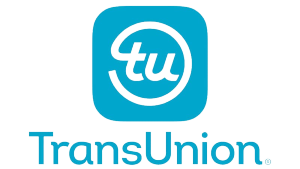
There are different sources of funding for medical students, from scholarships to government loans and scholarship programs. To be able to properly manage the funds you have at your disposal, you must first know the options available to you in choosing the best loan for medical school.
Ways to Find the Best Loan for Medical School
Below, you will find scientific strategies for the most common types of financing, which you can follow step by step:
- Apply for scholarships to borrow as little as possible
- Make the most of government student scholarship programs to minimize debt
- Use government student loan programs to pay for other expenses
- Build a good credit history to ensure financial security
- Obtain a line of credit or a line of credit when needed
- Establish a rigorous budget to avoid unnecessary debt
- While studying, develop good financial habits to prepare for residency
- After graduation, apply for student loan forgiveness and debt relief
- Have a financial plan adapted to your needs
Apply For Scholarships
Scholarships are one of the primary sources you should consider. Because if you get approved, you won’t have to think about repaying them. They are awarded on the basis of merits, such as academic performance or other factors, such as financial need or service obligation contracts. These scholarships include those valued at between $2,000 and $5,000, which is awarded to one student from each medical school. The deadlines for submitting scholarship applications are usually late fall or winter. So watch these dates, and send your requests early.
Be aware, however, that the scholarship amount may not be enough to cover all of your expenses. You will likely need to find other sources of funding, such as government scholarships and student loan programs or the best loan for medical school. Let us first look at government scholarships.
Government Scholarships
Government grants are a great option for funding education, as you will not have to repay the amounts received either. These kinds of scholarships are for medical students who want to pursue post-secondary studies. And the funds are allocated to them according to their financial needs. Some of these scholarships can be obtained directly from the university you want to attend and others would come directly from a government source.
Financial Assistance
Before applying for financial assistance, consult an advisor. Ideally, this person should be knowledgeable about funding medical education. From the loan application stage to the end of your residency, a financial services specialist can help you optimize the financing solutions available to you. Manage your debt, and then pay it off when you need it. Most of these advisors have the experience and know how to guide students in their financial decisions during their studies and beyond. They can help you get started on the right foot.
It should be noted that your financial situation can influence the amounts that may be granted to you by governments. For example, if you are married or living in a common-law relationship, your spouse’s property may also be taken into account in calculating the amounts to which you will be entitled.
Build A Good Credit Report
No matter what profession or specialty you practice, your credit report will have a big impact on your life down the road. If you show that you are a trustworthy borrower, you will maintain or even improve your credit rating. Your experience will also affect your ability to borrow in the future (and the interest rate you earn), for example, to buy your first home. The higher your credit score, the more creditworthy you will be. So if you pay your bills (and pay off your loans) on time, your credit rating will go up. Conversely, if you don’t make your payments when due (or at all), your rating will go down.
The Credit Bureaus
Whether you like it or not, credit bureaus (TransUnion and Equifax in Canada) monitor your credit report and assess your viability as a borrower. Your credit report is updated every time you apply for a loan or line of credit. The information you provide in your loan application is used to update your credit rating. One of the factors that will help you maintain a high rating is the length of a loan or your experience as a credit card holder (the longer the better).



Your Credit Report and Rating
Check your credit report and your credit rating. TransUnion and Equifax may send you a copy of your credit report by mail (but your credit rating will not be included). For a certain fee, the two agencies will nevertheless be able to give you access to your credit report and your credit rating online. You could also get your credit score for free through your financial institution.
If your score is 700 or higher, you should be getting the best interest rates. However, if it is less than 650, you may not be able to access new credit. Checking your own credit report does not affect your creditworthiness; do not hesitate to inform yourself.
Get a Line of Credit
After applying for scholarships and government student loans and grants, you will most likely find that you will still be short of money to fund your education. If so, you can apply for a student line of credit. The main advantages of the student line of credit are that they are flexible and cost less in interest. It differs from traditional lending in that you use the money when you need it and pay interest only on the money borrowed. This is a significant advantage, the margin being more economical than the loan. The repayment terms of the line of credit are also more flexible. And the monthly payments required are generally lower than for government student loans.
Fluctuating Rates
The catch is that the rates fluctuate. Student lines of credit interest rates are generally set based on the lender’s prime (or prime) rate. For example, the lender might grant you the base rate minus 0.15%, so 2.30% for a base rate of 2.45%. As soon as the base rate changes, your rate changes too. You should therefore monitor interest rates closely to get an idea of how they will develop in the future.
One Drawback
Another drawback is that, unlike government student loans, interest for the student lines of credit will accrue immediately on the amounts borrowed. With some student lines of credit, interest can be capitalized, meaning that you can sometimes skip a payment, and the interest due is added to the principal (the amount you borrow initially). This solution will reduce your financial burden to some extent. But remember that it will increase the debt that you will have to pay off later.
Comparing Lines of Credit
To compare lines of credit, review the terms and benefits. Although many student lines of credit are relatively similar regardless of the lender, you can usually distinguish them by the benefits offered and the terms, such as a grace period for repayment or options for conversion and repayment. You should also consider the intangible benefits: Do you get along well with the resource people at a particular supplier? Do you trust them?
Student Benefits
Some banks have special student programs that will benefit you while you are a medical student. This may include a line of credit at a low-interest rate as well as a checking account. As a medical student, you may also get waived credit card fees and other benefits. No matter what line of credit you want, apply early. Your best bet is to submit your application at the same time as your government student loans and grant applications.
Borrow Less
Remember that anything you borrow bears interest. It is, therefore, best not to borrow more than necessary. In addition, choose the source of funding from which you can withdraw money. If you have obtained scholarships or loans that do not bear interest, take that money before you borrow funds that will bear interest. Anticipate the impending big expenses. Large expenses like tuition, books, and exams are a big hit to your bank account. But they are easy to predict and manage. During your medical studies, you will not want to incur overdraft fees either, so try to manage the expenses that will go through your account.
Conclusion
Unfortunately, even if you budget correctly for your first year of medical school, you may find that the rising fees throughout your studies be overwhelming. It is therefore essential to create a budget (and even more important to respect it) in order to prepare yourself for this increase in costs. If you want to learn more about the best loan for medical school and your budgeting strategies, go to the Goalry Platform online and click on the Loanry store and Budgetry store.

Cheryline Lawson is a personal finance writer who lives in Fort Lauderdale, Florida with her husband and two boys. She has worked as a mortgage broker and loan processor in the most recent past. She shares a lot of her experiencing in financial planning, real estate investing and budget advice with national media outlets like GoBankingRates, Intuit, Bustle, Buzzfeed and CBS News. Ms. Lawson is a graduate of Broward College in Florida. She came into her own as a mortgage broker after realizing so many people need help to get into their first home. She has a passion for helping others, especially those who need financial advice to use in their daily lives.
